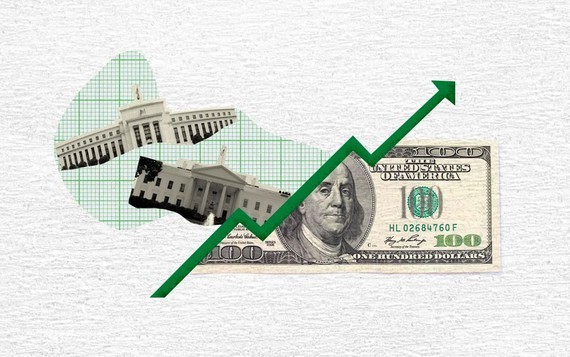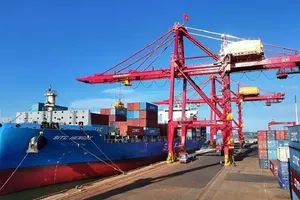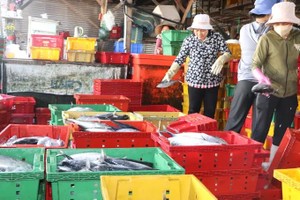
Rising inflation
In the US, economists downgraded GDP growth forecasts for this year but raised inflation forecasts in the latest Bloomberg survey. Inflation in the US since the 2008 crisis has barely reached target. The CPI rose 0.9 percent in October after surging 0.4 percent in September, its biggest gain since 1990. The biggest gain in last four months propelled the CPI annual gain up by 6.2% in the US, the highest in 31 years.
Despite the sharp increase in prices, the income of most Americans only increased by a modest 0.2%, equivalent to USD35.5 bn. Disposable income grew even less by just 0.1%. If inflation gets too high then everyone wants to save money rather than spend it, so the U.S. economy will be in real trouble. This shows that the savings rate has skyrocketed during the Covid-19 pandemic, estimated at 9.4% in August.
Some economists say that Americans tend to start delaying purchases due to high prices. This has a huge impact on consumption as consumers are still the mainstay of the US economy. The largest US investment bank, Goldman Sachs, said that although the Federal Reserve (Fed) wants to continue to be patient in raising interest rates, the chances for them holding out are narrowing.
In Europe, Germany's annual consumer price inflation surged to a 28-year high, showing that price pressure is intensifying in the continent's largest economy. The Eurozone ended the third quarter with the highest increase in consumer prices in thirteen years. Goods and services in the Eurozone have become more expensive as inflation hits 3.4%, with energy prices rising 17.4% in September. This rate is well above the 2% target set by the European Central Bank (ECB), and may increase pressure on governments of the European Union (EU) about the ability to apply strong measures.
Inflation in the UK is also forecast to rise to 5%, more than double the 2% target set by the Bank of England, despite a slow economic recovery from last year recession. Bank of England Governor Andrew Bailey spoke of the need for action to rein in inflation expectations.
In Asia, South Korea's consumer inflation accelerated to a near ten-year high in October, due to higher product costs from energy prices, housing rents, and food services, putting pressure on policymakers. Although inflation was everywhere, economic reports all assessed that after a strong increase in the first half of the year, economic growth showed signs of slowing down or adjusting. The economies of Asia and Southeast Asia have been continuously downgraded by the World Bank, IMF, and financial institutions.
Growth stagnant
Economic growth is stagnant while inflation is high, which is a challenge for Central Banks. This poses a major threat to the already uncertain recovery of the global economy. Behind the supply chain bottlenecks are overloaded transportation networks, labor shortages, and skyrocketing demand for goods.
The stagnant environment also puts policymakers in a dilemma, because keeping interest rates low will help promote economic recovery, but increase the risk of commodity price escalation, thereby increasing inflation. Tightening policy can help quell inflation by curbing demand, but demand for goods will decline when economic stimulus packages are withdrawn, or consumer confidence is eroded due to concerns about tighter financial conditions.
If Central Banks act too slowly, inflation could continue to rise, raising prices amid falling incomes that would affect everyone. However, if interest rates are adjusted suddenly, it will adversely affect the economic recovery process, making it more difficult because the debt in many countries is already too high, and when the quality of debt decreases, the bad debt increases.
Many Central Banks such as in Iceland and Mexico had to raise interest rates, even the Russian Central Bank raised interest rates for the fifth time this year, including one time raising upto 100 basis points. Some other economies shifted to gradually tightening policy such as Canada and China. In particular, the Fed officially announced to cut demand stimulus packages, thereby marking the first step in the process of gradually withdrawing support for the US economy.
A recent Reuters poll showed Brazil's benchmark interest rate will rise by at least another 100 basis points, as the country's Central Bank reacts to concerns about worsening inflation. The Bank of Canada will raise interest rates as early as next year, at least three months earlier than previously expected. The shift in sentiment is based on mounting inflation pressures, driven by global supply chain bottlenecks, labor shortages, and rising energy costs. For the UK, it is likely that the BoE will raise interest rates, but whether this will happen at the end of 2021, or have to wait until the beginning of next year is still unknown. If the BoE decides to raise rates next month, it will be the first hike since 1994.
Many Central Banks were forced to tighten monetary policy, but there are softer measures to support the economy, by reducing the size of demand stimulus, than drastic measures such as raising interest rates. Besides, such large-scale policies often have a long lag time of six to 24 months. The cautious action of the Central Banks with monetary policy and the government with fiscal policy shows that the delay cannot be earlier than twelve months. In addition, the market may slow down or grow more slowly when prices are too high, making it difficult to face a collapse as in 2008.
Concern on investments
In this context, Vietnam's financial market will have a greater opportunity because domestic inflation is under control and the economy has just reopened, which will help inflation to not increase too quickly. This helps the room for domestic policies to be more spacious than in other economies that are showing signs of losing control due to rapid inflation. Although the gold price has a great opportunity to surpass the old peak in the medium and long-term thanks to the high inflation environment, in Vietnam, it is very difficult for gold buyers to make a profit because the difference with the world price is upto VND9 to 10 mn per tael. Buying and selling prices are also stretched far when world prices fluctuate.
Therefore, for some reason, if this gap is flattened, it will make gold holders face heavy losses. However, for investors with a lot of money, gold is still a good investment channel to diversify their investment portfolio, but investors with less money should only focus on two or three products.
The price of oil, the main fuel for the economy, is also the cause of inflation today, because the price has come quite close to the highest level in history in last fifteen years. In Vietnam, gasoline prices are currently at a historic high due to tax, fee, and exchange rate rise over the years. However, it is difficult for oil prices to rise further in the long term, because when the price of oil approaches USD100 per barrel, alternative energies are preferred, especially renewable energy at low cost. Besides, OPEC+ often takes action to increase production to optimize profits, also helping in restraining oil prices.
The stock market and real estate market will still benefit from cheap cash flow and low interest rates as well as economic support policies, at least until the policies are tightened. However, these two markets are at peak, so the risk is certainly not small, especially for big investors. Therefore, it is difficult for these two markets to see as good profits as before, even though the growth rate is still there.
























